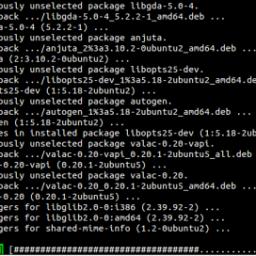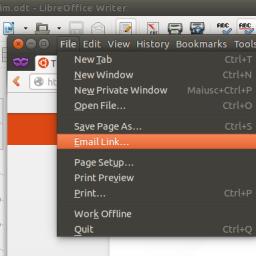
From
Phoronix :
Debian developers announced this week version 1.0 of APT, their Advanced Packaging Tool, on the day that the packaging project turned sixteen years old.
APT was conceived sixteen years ago on 1 April and on 1 April of this year they celebrated its "sweet sixteen" by releasing APT 1.0. This was no April Fool's Joke. One of the new features to APT 1.0 is a new apt binary that has most of the commonly used commands from apt-get and apt-cache.
If this were Chrome or Firefox, they would be in the hundreds by now.
[
Editor's Note: More information on Debian APT 1.0 is available in the official release announcement and on Synaptic and APT developer Michael Vogt's blog . ]
musl, a lightweight alternative to the GNU Clibrary , has just had its version 1.0 released after three hard years of development. musl is, according to its developers:
a lightweight, fast, simple, MIT-licensed, correctness-oriented alternative to the GNU C library (glibc), uClibc, or Android's Bionic. At this point musl provides all mandatory C99 and POSIX interfaces (plus a lot of widely-used extensions), and well over 5000 packages are known to build successfully against musl.
musl is indeed lightweight, and
a chart showing how musl compares to uClibc, dietlibc, and eglibc shows musl compares favorably and often outshines other small C libraries. Several options are available for trying musl. Compiler toolchains are available from the musl-cross project, and several new musl-based Linux distributions are already available (Sabotage and Snowflake, among others).
Some well-established distributions including OpenWRT and Gentoo are in the process of adding musl-based variants, and others (Aboriginal, Alpine, Bedrock, Dragora) are adopting musl as their default libc.
It's long been the case that the world of Linux distributions offers at least one compelling choice for virtually every taste and purpose, but -- much like those dissatisfied with the weather in New England -- users who don't see a distro they like need only wait a few minutes. The open source nature of Linux means that users not only can fork and create entirely new distros of their own at will, but also take advantage of others' efforts to do so -- and those efforts are ongoing.
What makes one distro last and another give up?
Linux Insider takes a closer look. Ars Technica
Ars Technica reports that the next version of Ubuntu (14.04, or
Trusty Tahr ; a Long Term Support Release) will allow users an option to display menu bars inside their parent application windows -- a move away from Mac OSX interface conventions towards the menu placement more commonly used in Windows.
"Despite displaying the menu contents outside of the window, the menus are still window-specific," we noted in a review of Ubuntu 12.04 in May 2012. "By design, the global menu bar displays the menu of the focused window. This proves awkward in some applications with dialogs and multiple windows."
The intended result is to "fix the main UX bug we have [had] in Unity since its very first release: the menus being
hard to find or too far from their parent window ", according to a blog post
Canonical employee Marco Trevisan . "The amount of technical work needed [is] not to be underestimated [...] one of the blockers we had in 12.04 was our dependency on the legacy compiz decor plugin + gtk-window-decorator, that has worked 'OK' in the last years but -- apart from using deprecated technologies (gtk2 in primis) -- it really would have made this concept impossible to realize."
A
tahr appears to be some species of mountain goat indigenous to the Himalayas.

